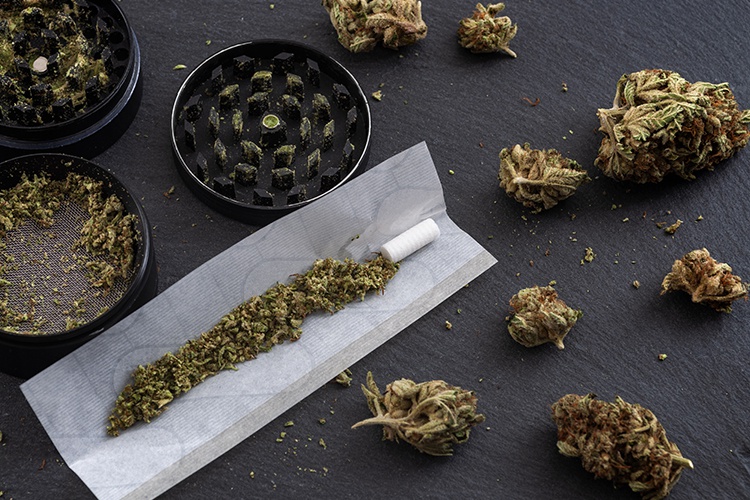Are you or a loved one struggling with weed addiction? Have you tried to quit but can’t seem to break the cycle of drug addiction? 1000 Islands Addiction Treatment Centre offers an accredited marijuana addiction treatment program with professional support to help you succeed in managing cannabis use. We’re located between Toronto and Ottawa, close to the U.S. border. Contact our drug addiction treatment centre today for more information.
Cannabis Addiction Treatment at 1000 Islands
Contrary to what some people believe, it is possible to become dependent on marijuana. As with most substances, the brain and body adapt to the presence of marijuana as it is used with increasing frequency. And so, when use stops, withdrawal symptoms can set in. The good news is that while these symptoms are uncomfortable and, at times, frightening, there has never been a recorded death from marijuana withdrawal. Nonetheless, it is better to stop your use of marijuana under the guidance of a medical professional of an addiction rehab, especially if you have coexisting health conditions that could be exacerbated by the withdrawal symptoms, or if you have been using marijuana in conjunction with alcohol or any other substance.
The most common marijuana withdrawal symptoms include:
- Headaches
- Insomnia
- Nausea and vomiting
- Restlessness
- Irritability and agitation
- Anxiety, depression and mood swings
CALL OUR TOLL-FREE HELPLINE NOW AT 1-855-929-4045 or SEND US A MESSAGE
Marijuana Rehab in Ontario
Derived from the cannabis plant, marijuana is widely used for recreational and medical purposes. The effects it produces depend on the specific plant it is derived from: there are almost 800 known strains of cannabis, falling into three broad categories.
- Indica: generally produces a relaxed, calm effect
- Sativa: generally enhances energy, alertness and the ability to concentrate
- Hybrid: these plants are genetically modified to produce a specific combination of effects
How Is Marijuana Consumed?
As countries and regions around the world allow the use of marijuana for medical or recreational purposes, cannabis companies are coming up with inventive ways to package it. Some of the more common methods of consumption include:
- Smoking: Dried cannabis flower is smoked in a joint, pipe or bong. This method is popular because it is so efficient: the effects can be felt within moments.
- Vaping: Cannabis oil is heated and the vapours are inhaled. Like smoking, this is a highly efficient means of ingestion.
- Edibles: Cannabis is used as a recipe in chocolate, baked goods such as brownies, and ice cream. The effects are felt anywhere between 15 minutes and two hours, depending on the person’s metabolism.
- Oil: Various concentrations of TCH and CBD – the two active ingredients in cannabis – are made into oil that is taken in small doses. Onset of effects takes 15 minutes to one hour, depending on the product.
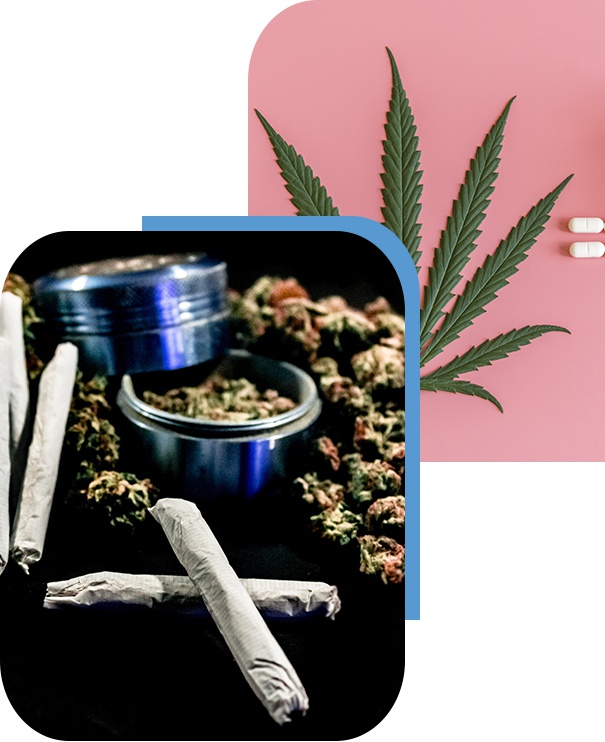
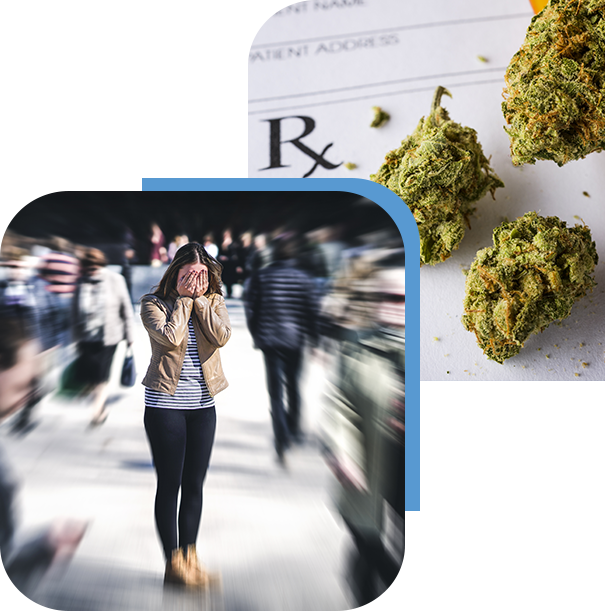
Is Marijuana / Weed Harmful?
The effects of marijuana vary widely not only from one person to the next, but from one strain of cannabis to the next. The reason for use also has an impact: medical users of marijuana take the drugs for a specific purpose, and if they are using it as prescribed, they are taking specific doses at carefully planned intervals.
Recreational users, on the other hand, are less likely to monitor and control how much marijuana they are using, and with what frequency. In some individuals – and for some strains of cannabis – some side effects may appear. These include:
- Impaired coordination and slower-than-usual reflexes
- Impaired judgment that may lead to high-risk behaviour
- Increased risk of cardiac arrest and stroke
- Short-term memory problems
- Some individuals may experience paranoia, hallucinations, and dissociation from reality
Those who use marijuana recreationally for an extended period of time may be at risk of the following long-term effects:
- Poor performance at work or school
- A decline in cognitive ability
- Difficulty learning and performing complex tasks
Marijuana As A “Gateway Drug”
Over the years, there has been some debate as to whether marijuana is a “gateway drug” that leads individuals into the use of other, more harmful substances. Available evidence does seem to support the idea that people who use marijuana regularly are more likely than non-users to become addicted to other substances, such as opioids and alcohol, especially in those who start using marijuana during their teenage years.
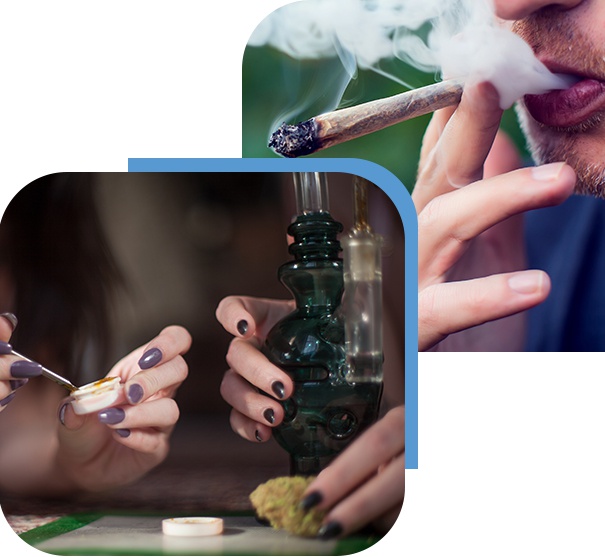

What About Medical Marijuana?
The increasing use of medical marijuana has created a misconception among many that marijuana is actually good for you. There is no evidence supporting the notion that recreational use of marijuana over an extended period of time leads to any health benefits. In fact, smoking marijuana exposes the user to known carcinogens in much the same way that smoking cigarettes does.
It is important to note that medical marijuana is used for the treatment of specific conditions. In this sense, it operates in much the same way as any other prescribed medication: when used as directed by the person for whom it is prescribed, it can be effective in treating the targeted condition or symptoms. When misused, it can lead to more harm.
How Can I Overcome Marijuana Addiction?
People become addicted to marijuana for all kinds of reasons. In many cases, this addiction affects teenagers who are struggling to fit in, who are experiencing difficulty with their families, and who are struggling with their confidence and self-esteem. Other times, the person with addiction is an adult who started using marijuana in order to stay alert during long days at the office.
No matter what path led you to where you are, inpatient rehab for marijuana addiction can help you overcome your problems and start a new life that is free from the shackles of substance abuse.
All of our treatment plans are tailored to the needs of the individual, based on your unique needs and circumstances, the state of your physical and mental health, how long you have been using marijuana and whether any other substances are involved, and much more.
We understand the balance between rehab and recreation, and we allow plenty of time for our clients to enjoy the beautiful surroundings and connect with nature.
To get started, all you have to do is call us. We are looking forward to helping you start your journey to a better life.
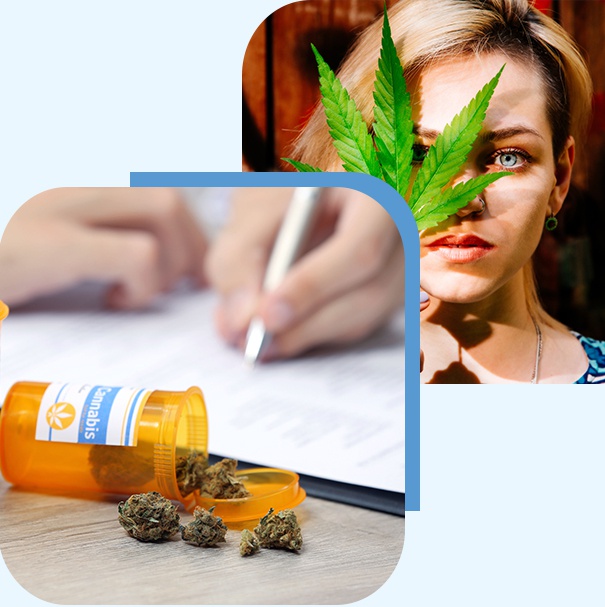
Marijuana Inpatient vs Outpatient Counselling
There is no one-size-fits-all approach to addiction treatment, and overcoming marijuana addiction is no different. Here are some considerations to help you decide which kind of program suits your needs best.
Inpatient Marijuana Addiction Program
Inpatient programs typically involve staying for a month or longer at marijuana addiction treatment centres. There, addiction counsellors lead daily activities to help patients better understand drug addiction, learn effective tools for relapse prevention and develop healthy coping methods. They can also include detox services to manage withdrawal symptoms, and added support for mental health. Here are some advantages and disadvantages of inpatient rehab for addiction treatment.
Pros
Get away from your regular routine. Habits are difficult to break, especially when your day to day activities haven’t changed. By staying at an addiction rehab facility, you’re getting away from temptations, triggers, and other substances altogether.
Focus on recovery. At our cottage-style treatment centre, your only focus is on getting better. We take care of all the chores, like preparing meals and cleaning up. You’ll finally have the time and space to heal.
Part of the community. Recovery is challenging, but at our rehab facility, you’re not alone. You’ll be surrounded by peers in recovery, and will find support, guidance, and friendships along the way.
Cons
It’s a commitment. Not everyone has the flexibility to stay away for an extended period of time. If you have commitments and responsibilities that you can’t get away from, inpatient rehab might not be an option for you.
Cost. Inpatient treatment is expensive, and unfortunately it isn’t accessible to everyone. While the cost of a month’s worth of accommodations, meals, therapy, and expert support is no small expense, regaining control of your life is worth it – especially when compared to the cost of drugs and the risks of drug use.
Outpatient Marijuana Addiction Program
Unlike inpatient programs, outpatient treatment does not involve staying at a centre away from home. While not quite as immersive as an inpatient environment, this level of support might be perfect for those with other commitments, or more mild substance use issues.
Pros
No need to put a pause on life. Outpatient programs don’t require you to stay away from home, and typically don’t have you on demanding schedules. That means you can maintain work and other responsibilities while getting better.
Affordability. Compared to other treatment options like inpatient rehab, the cost of outpatient treatment is more accessible.
Cons
More freedom can be challenging. While some people with marijuana addiction can find the determination to control their substance use despite withdrawal symptoms, many others will find it difficult to break the cycle of addiction without barriers to access it.
The same daily habits. If you’re in the habit of marijuana use as part of your daily routine, to cope with stresses or to unwind from work, you will likely have to face the temptation to use cannabis over and over. Sometimes a new routine is needed to develop new and healthy habits.
Marijuana Addiction Treatment Plans
All of our treatment plans are tailored to the needs of the individual, based on your unique needs and circumstances, the state of your physical and mental health, how long you have been using marijuana and whether any other substances are involved, and much more.
We understand the balance between rehab and recreation, and we allow plenty of time for our clients to enjoy the beautiful surroundings and connect with nature.
To get started, all you have to do is call us. We are a marijuana addiction treatment center looking forward to helping you overcome your weed addiction and start your journey to a better life.
Frequently Asked Questions
What is marijuana addiction?
Addiction to weed, just like other drug and alcohol addiction, is defined as the inability to manage or cease use of the substance despite having negative effects on your life. It can also be related to other mental health issues.
How is marijuana addiction treated in Ontario?
Marijuana addiction treatment typically involves therapy and counselling in order to better understand the mental health implications of addiction, and to develop healthy and effective coping methods for dealing with stress and drug use triggers. If you’re struggling with weed addiction in Ontario and need help, contact us today.
How does rehabilitation for marijuana addiction work?
By staying at an inpatient facility for an extended time, you’re able to develop new habits while learning from addiction experts how identify and react to triggers.
What are the long-term effects of marijuana addiction?
Over an extended period of regular cannabis use, long-term cannabis addiction can cause a decline in cognitive ability and difficulty learning and performing complex tasks. This can also result in poor performance at work or school, and decreased motivation to develop new skills or try new activities.

